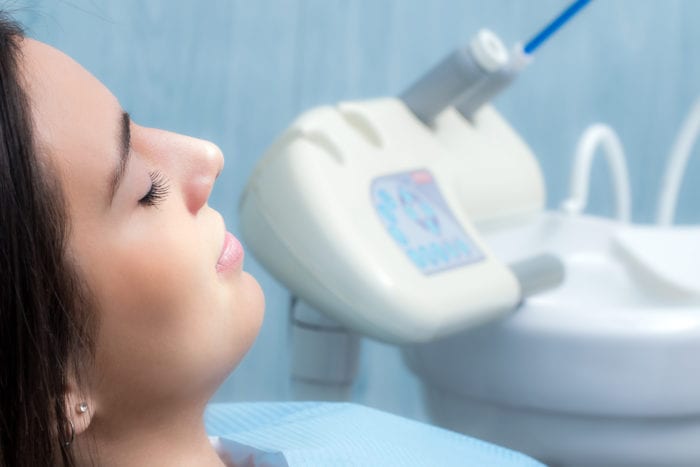Do your gums bleed when you brush and floss? Are your gums sensitive to temperature? You may be in the early stages of gum disease. Periodontitis, or gum disease, is a bacterial infection that affects the gum tissue. Gum disease begins as gingivitis or gum inflammation.
Over time, patients can experience worsening symptoms that lead to gum recession and permanent tooth loss. Our team offers periodontal disease treatment for patients in Raleigh, NC, and the surrounding areas as part of our restorative dentistry services. Professional gum treatments restore the smile and prevent the spread of bacteria to other parts of the mouth.


What Are the Common Signs of Gum Disease?
The most prominent symptoms of gum inflammation and gum disease include:
- Tender and irritated gum tissue
- Bleeding gums
- Red or purple gum tissue
- Bad breath
- Pus between teeth
- Gum recession
- Deep gum pockets
Treating these symptoms can ultimately improve heart health. Because harmful bacteria inflame the gum tissue, this inflammation can easily spread to the heart. Patients who already have gum disease are at risk of heart problems like heart attacks, strokes, and heart disease. Receiving professional dental care can decrease the chance of heart issues.
Addressing gum disease as soon as possible is also better for your long-term oral health. Severe gum disease can lead to tooth loss and bone loss. Patients with untreated gum disease will often need to undergo tooth extractions.
Gum Disease Treatment in Raleigh, NC
Scaling and root planing are deep-cleaning treatments for patients with signs of gingivitis and periodontitis. During scaling treatment, a hygienist uses a precise metal tool to remove harmful bacteria on and beneath the gum tissue. Root planing treatment removes bacteria from the tooth roots.
These treatments remove plaque, a bacterial film, and tartar, the hardened form of plaque. Oftentimes, it is difficult for patients to remove tartar and calculus when brushing and flossing. Scaling and root planing help heal gum tissue and reattach the gums and tooth roots.
We will also recommend antibacterial rinses after scaling and root planing treatments. Antibacterial rinses help keep harmful bacteria from affecting the teeth and gums. Some patients with chronic gum problems benefit from scaling and root planing every 3 to 4 months.
Address Gum Problems Today
Do you want to restore your gum health? Call our Raleigh dental office today at 919.295.0936. You may also schedule a dental appointment with us online.
